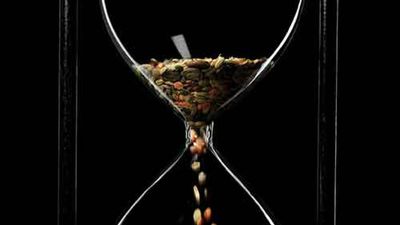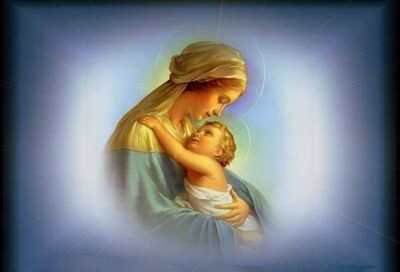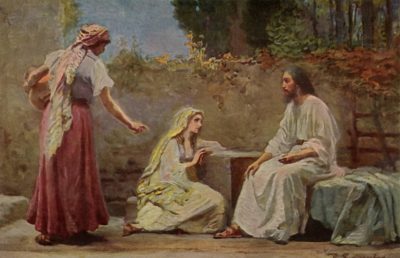June 26, 2022
|by N W
|
0 Comments
|
Commitment, Family, Guest Celebrants, Joy, Life, Mission, Thanksgiving
Thirteenth Sunday in Ordinary Time
June 26, 2022 – Year C
Readings: 1 Kgs 19:16b, 19-21 / Ps 16 / Gal 5:1, 13-18 / Lk 9:51-62
by Rev. Jay Biber, Guest Celebrant
This was a week like no other, with the big elephant in the little living room: major cultural shifts. And to many of us, what came down from the courts is not necessarily friendly.
There were three decisions that came down from the high court. The first one was about the second amendment. The second sort of gets blocked out, about faith in education. It was a case brought from the state of Maine, in which the county agreed to pay for public or private schools, as long as there was no religion involved. Parents challenged the decision that no religion could be involved. The court’s ruling stated that as long as a full education was offered, public funding could be used regardless. So, we’ve all learned that it’s very important for Catholic parents to keep a close eye on education.
The third one on Friday has to do with the whole culture of life. I think of all of your prayers that have been going up for these forty-nine years since January of 1973, for an end to abortion and to respect the dignity of every human being from moment of conception to moment of natural death. That’s the first right, after which all other rights follow.
The Supreme Court decision does not mean an end to abortion. It was more of a judicial thing that says we took a case forty-nine years ago that was not settled law. In fact, it overturned state law for most of the states in the country and almost guaranteed an ongoing controversy. And so it returns to the states, for those of us who consciously wish to establish that culture of life in which every life is welcomed.
When I visit the nursing home and see the person whom I once knew in the prime of life, ranting and incontinent – no, you’re not a vegetable! You’re never a vegetable; you’re a human all the way to the end of your natural life. We don’t interfere with that. And you are human from the moment of your conception.
So, it’s up to us going forward, because in Virginia nothing has changed between Thursday and Saturday. To work for that right to life is still what lies before us. It has just been brought back to the state level now. The feeling was that the judiciary had been too activist – they had taken too active a role in what should have been up to the people at the polls to decide, not the unelected judge, so it wasn’t a constitutional issue.
I have the sense that you are probably getting hammered by those who know you are Catholic, because not everybody out there is friendly to what we stand for. Like in the early Church, in some ways we stand alone. I hope to give you a couple of things that you can say, because I don’t want to see you unequipped or defenseless. I want to see you with some words that you can believe in.
Long ago, as early Christians, we separated ourselves, often at the cost of life and limb, from the Roman Empire, and it was remarked upon by commentators and historians, that all these Christians don’t want to abort their children and they don’t expose their children.
What was common under the Roman Empire was that children who weren’t wanted were put out where the animals were, or in the forest, or on the roof overnight. Of course, many of them didn’t survive. That was called exposing, and if they survived, the family would often take them back. Christians didn’t do that.
And I suspect that it was because we were taken from all walks of society, and we recognized that since Christ came for all, and since all were made in the image and likeness of God, and that since Christ had taken on flesh, that means that I have to treat their lives with enormous respect.
I always love first confessions. You know when the kids come in, and some of them have very keen consciences, and some not so much. But I always remind them that God loves you and that you are not here by accident. You’re not some cosmic waste; you’re here for a reason (although they may not know it yet), but you’re not here by accident. And so, it opens us up early on, hopefully. From the beginning we stood apart, regardless of how the empire went, and regardless of how the empire goes now.
This is in the future and I don’t have a crystal ball for you. Whatever happens, we’ll stay the same. Now we think it’s a great way to live. It is profoundly liberal, because it says there’s room for you. We don’t know how we’re going to put that extra plate at the table, but there’s room for you. That’s the best of the word “liberal” – an openness to the unexpected, an openness to what God’s doing that I may not be completely in touch with.
So, not only do I go back to the beginnings of things, I go back to when my own life began, which wasn’t the day that I appeared to the world in August of 1947. I’m guessing it was around Thanksgiving time the year before when my life first began inside my mom. She didn’t know I was there. Dad didn’t know; I guess God was the only one who knew. But what I know now that I didn’t know then is that even at that point, I was a person. I had a right to life. I was a human being. And now we know scientifically that I even had my own DNA. My mother was the one who carried me, but I wasn’t her, I wasn’t a part of her in that sense. I was dependent on her, but I was not her; I was somebody different. And that’s what we keep saying – the baby is somebody different, and the baby deserves that protection. We speak of the baby because maybe our first experience of faith was to think of a baby, because babies are voiceless.
A number of different numbers come to mind as I reflect back. The number 49. The number 43. The number 95. Forty-nine years ago, when I had just quit the seminary, I had been in for ten years – high school, college in Rhode Island, where I am from, and then over to Belgium for my graduate work for three years. Times were sort of wild in 1972; it was a crazy, crazy time. I said to myself that I had too many reservations, so I left the seminary, stayed in Europe after being in Belgium for three years where it was always cloudy and gray. I needed to clear out the cobwebs, so I hitchhiked down to the south of Spain and worked there for six months, got some sun, and then hitchhiked up to Switzerland where I waited on tables in the Alps and was a ski bum for six months before coming back to the states.
It was during that time that the Roe ruling came down. Of course, it was not on my radar, so I knew nothing about it. I only heard about it later on, and life has a way of coming full circle. After a business career I was drawn back to the priesthood, and I moved from Boston down to Virginia and was ordained here. There I became involved in the Pro-Life movement, because once I began to think about it, I said, “This can’t be.”
And on a day like today, I think of those in parishes throughout the world who are praying. I think of all those Marches for Life rarely covered by the news media and the longest peaceful protest in history. All those people who said, “This ain’t right.” In a culture that doesn’t have an attention span of 49 seconds, this is 49 years and that March for Life becomes like a great family reunion every year. It’s sort of like Woodstock without the dope – it’s the same average age as Woodstock was. There’s a sense of ‘we need to be here.’ And of course, now that is reversed and sent back. I think of all the people who have gone before us during those forty-nine years and those whose prayers, in this respect, have been answered.
Think of the number 43. There was no long history, no constitutional right to abortion. It was a very activist decision because the laws of 43 states were changed by this, overnight. And that was hard to swallow. So, this time around, the court says it is not constitutional – it must be taken back to the people.
I think of the number 95, for it was 95 years ago, not far from here in Amherst and Charlottesville – that the Supreme Court case was Buck v. Bell, dealing with involuntary sterilization of imbeciles, feebleminded, and people who were ‘less.’ It was the eugenics movement. It eventually got exported to the Third Reich. The eugenics movement – some lives are worth more than others – who would breed and who wouldn’t. And that Supreme Court, perhaps the most illustrious of all time, came down to permit it.
All the way up to the 60s, thousands were victims of involuntary sterilization, and that Supreme Court consisted of luminaries. Former President Taft was on it, and perhaps the most well-known of all Supreme Court justices, Oliver Wendell Holmes, Louis Brandeis. This is a list of the greats, and they came out 8 to 1 in favor of eugenics. Now it had to get overturned and was overturned in the 1940s, when we saw what it wrought. But the one dissenter, which sort of struck me, was the one Catholic justice. He was raised not in the lap of luxury, not with a silver spoon, but in a log cabin in Minnesota with ten other kids in the family. Somehow, he knew.
I’ve been thinking about this for a long time and I feel very inadequate. The first time around we didn’t have the words; we didn’t know what to say. Perhaps when you get confronted, maybe we can begin to get the words now. What I always ask is if a baby is a baby is a baby, and I was who I was before my mom knew I was there. Science tells me that. I wasn’t part of Mom in that sense. I was who I was. The other thing I say is when you look at much of this back and forth is that nobody talks about Baby. And I simply say, “Who speaks for Baby?” You’d expect Mom to be the one to speak for Baby, but if not, we will. Keep Baby at the center of the conversation.
Listening to today’s gospel, I would say put this on my tombstone. Where he says to Jesus, I will follow you wherever you go. And Jesus says, “Foxes have dens and the birds of the air have their nests, but the Son of Man has nowhere to rest His head.” That to me, is the great romance of the priesthood, or trying to follow Christ, I think for all of us. To eventually let go of all the little props and little securities that I need, and to turn myself over completely to Him. Where the Son of Man has nowhere to lay His head, there is no security but Him.
This is a chance for us to move forth, to say no, we think a culture of life is a great thing, and yes, we may have to revise the whole sexual revolution. We may have to revisit that and say that it was not such a great idea. Look at a lot of the results. Now we may have to go back and do a lot of work, but the battle is always Christ’s, and so may we be graced with all the fruits of the spirit in going forth.
KEEP READING
 540-586-8988
540-586-8988 









